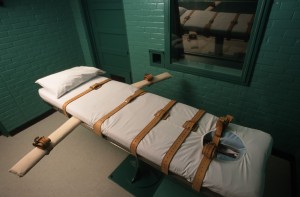Today, the family of Cameron Todd Willingham filed a petition calling for his posthumous exoneration. Exoneration, because he is almost certainly innocent. Posthumous because the state of Texas executed him anyway. More info can be found here, courtesy of the Innocence Project.
A Texas father of three, Willingham was convicted and executed for the alleged murder of his three daughters by arson. However, in a 2011 report, the Texas Forensic Science Commission concluded that unreliable fire science led to Willingham’s 1992 conviction and 2004 execution. Evidence cited as proof of an intentionally set fire, such as pour patterns, discoloration and “crazed” glass, has since been discredited.
If the petition is accepted and Willingham is posthumously exonerated, he will join with Timothy Cole in Texas, and Joe Arridy and Lena Baker in Colorado and Georgia, who, among others, were wrongfully convicted and executed or died in prison while serving out their sentence. SEE THE REST OF THIS POST
